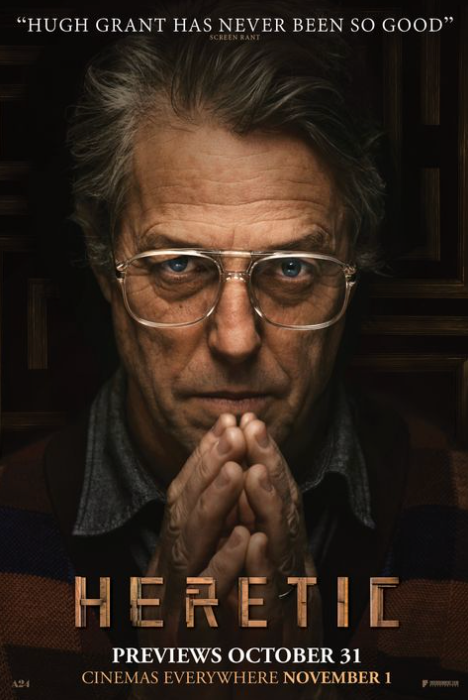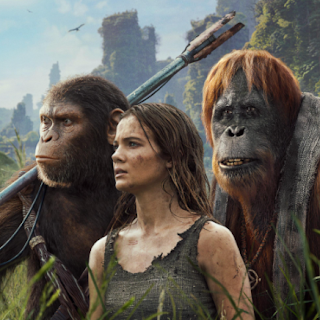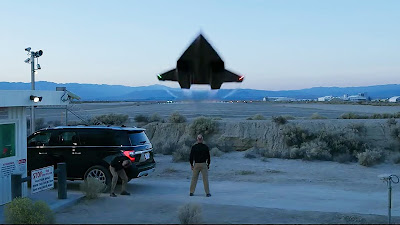This movie is awful.
I didn’t even wait for the post-credit scenes. I watched the movie with my partner, and, on leaving the cinema, we hardly discussed it. We chatted about other things, and I think that’s unprecedented. Shockingly so. It was so tedious.
I am also getting sick-and-tired of “Sweet Child O’ Mine” by Guns N’ Roses.
There’s so much that’s really terrible about this movie that I don’t quite know where to start. I have broken down the criticisms into three headings; firstly, the plot and scripting, then, secondly, the gruelling use of humour and comedy to the general feel of the movie, and, lastly, I shall spend some time examining the villainy of the story.
✲✲✲
The Anakin-Padme redux
One of my favourite reviews – which never fails to make me chuckle and was quite instructive – relates to Star Wars: Episode III – Revenge of the Sith by YouTuber “Confused Matthew”.
It is worth listening to some of his brief (minute or so) comments – linked here to the time-mark 08:37 – on the Anakin-Padme “relationship”. It captures my thoughts on the Thor-Jane storyline and dialogue. In a nutshell:
It is, as if, [George] Lucas expects us to believe that these two are in love just because they say they are, over and over again. And even when they say that it’s not only unconvincing, but the dialogue doesn’t even make very much coherent conversational sense.
In movies, the oft-quoted “show, don’t tell” prescription applies. Great acting can disclose more in nuance and subtlety in the performance than via forced storylines and abrupt and stilted conversation. The problem with Star Wars is that the audience is told Anakin is deeply in love with Padme; and that love, in turn, causes him to eventually shift to the dark side. But, in what sense does an audience really believe that he actually loves her? Apart from the occasional embrace and such stiff dialogue, as above, her death feels more like the death of sister than his inamorata.
In Thor: Love and Thunder, the movie starts with rock-guy (“Korg”) eulogistically reciting Thor’s adventures. The circuitous narration explains Thor’s past, his current mid-life crisis, and the apparent relationship he seems to have had with his then “ex-girlfriend” Jane. Just as with Revenge of the Sith, the oral exposition trumps scenes conveying real chemistry, love, and romance. The underlying difficulty is that the audience sees Jane as a plot device. She is not only a relatively trivial character whom Thor happened to have kissed once-or-twice (or whatever they did); but, as we all know, the whole backstory has been contrived in order to cram and squeeze her character into some epic tale.
The audience are exposed to fleeting memories – amid the narration – which is intended to capture the arc of their relationship. But these scenes have the opposite effect: it is forced and their love is thus superficial. There is no real chemistry or affection between them throughout the movie – apart from a clutch of cliché and rather clumsy lines. Even in death, Jane’s demise did not feel all that heart-breaking or sad.
In short, Waititi wanted Jane to take a leading role and the whole relationship was a device to pivot her into the movie and then back out again. She was afraid of dying because she was, in fact, dying. In the presence of Eternity, she ultimately died of what she was already dying of. So, what is the point?
My grievance is not just restricted to the Thor-Jane ‘dynamic’ , but the movie broadly. It has a weak and incoherent storyline (angled towards audience gasps and the shock-factor) and is fastened together with an uncomfortable script. The ‘children’ section of the movie felt very disjointed. Taken away from Asgard and stored in a cage, they end up briefly taking part in the final battle. This felt like a bizzare plot turn in the film. Why didn’t Thor ask the Guardians Of The Galaxy for help instead, given their role at the beginning?
The CGI – as one would expect – is dazzling; but I think heavy CGI masks a lack of catharsis that great acting & cinema can induce in cinemagoers. The pace of the movie is dizzying and much of the film involve Jane’s “this is happening now … don’t ask why” variety of scenes which, as you can expect, has all the grace of a sharp U-turn to the natural ease and flow of the film.
✲✲✲
The comedy and humorous
In Thor: Love and Thunder, the jokes and the general comedic effects were incessant.
Thirty minutes into the movie and it feels like the dialogue is largely quips, hahaha-s and general trying to be funny. So, for example, Zeus’s sexual jokes about orgies didn’t seem funny at all. Nobody in the cinema laughed and it felt a bit awkward with families watching. (And Poor Russell Crowe, that dreadful Greek accent he had to contrive!)
At one point, at the beginning, an exchange between Chris Pratt’s character and Thor – opportunity for some man-qua-man ‘the meaning of life’-type discussion – is also shoved through the jokes blender. Ultimately, these jokes feel inappropriate, even humourless. The trouble is that Thor – by relying so heavily on jokes and wisecrack triviality – remains the grating child-like character. Despite the movie’s premise that Thor has ostensibly “matured” (following Infinity War and Endgame), his behaviour and attitude affirm the contrary. Such as, for example, the way in which Thor callously destroys the temple of the aliens in the opening act, and is utterly indifferent about it. Was the audience supposed to find this funny?
Also, I am a bit ambivalent about the movie’s handling of Jane’s terminal cancer. I didn’t think it was explored, beyond cliche. A solemn subject like that should demand a more considered management. I was a bit surprised that the hammer (according to the movie) supposedly sped up her cancer? A bit random? Gorr (Christian Bale) does not kill her, nor does she really ‘sacrifice’ herself: indeed she dies in a cancer-related sense; and completely un-Viking-like. It did not really fit with the storyline at all, and I am not sure justice was done by the broader sombre issue of cancer.
Ultimately, the jokes were not really subversive at all, but rather increasing tedious and it felt as thought the movie could not really wrench itself off those tracks. It felt as if we were being drowned (especially with the moronic goat screaming). Additionally, given the general levity of everything in the movie, there was never any real weight or force behind anything. There are no high stakes, no real sense of risks being taken, and the whole movie feels a bit tedious.
✲✲✲
The villain
I did quite enjoyed Bale’s performance as Gorr.
The problem here is that Gorr isn’t really a villain. He’s called the “god butcher” but does no butchering. As a matter of facts, he’s was kind of sweet to the kids. If anything, he seems like an eccentric sympathetic dupe-like victim. In a way, his revenge against the gods felt authentic and even justified.
Drawing on my recent discussion of evil in The Black Phone, Gorr is the villain – not from any inherent vice or evil or malevolence – but merely because he’s counterposed to Thor. He’s a villain for the sake of it. Thor may well be a great superhero but he’s a cold and indifferent god – as the rest of them in the Omnipotent City while the “small people”, like Gorr’s family, struggle. (Classic Marxian class struggle.)
Firstly, we are told, that his nefarious evil goals are actually the result of the corruptive influence of the “necrosword” which granted him power. So, basically, he’s alright deep-down. Secondly, he isn’t defeated. He chooses to resurrect his long-dead daughter, in the end. Thor doesn’t really fight him (beyond the usual CGI kicks and punches). Gorr feels like Thor’s opponent perforce (his ire being directed at all gods and celestials). There is no sense in which this is personal.
The problem is the complete absence of any genuine villainy as – not merely the struggle of the battlefield but – a clash as to who is actually right (i.e. justice).
On the whole, this movie is one to miss.








.png)










